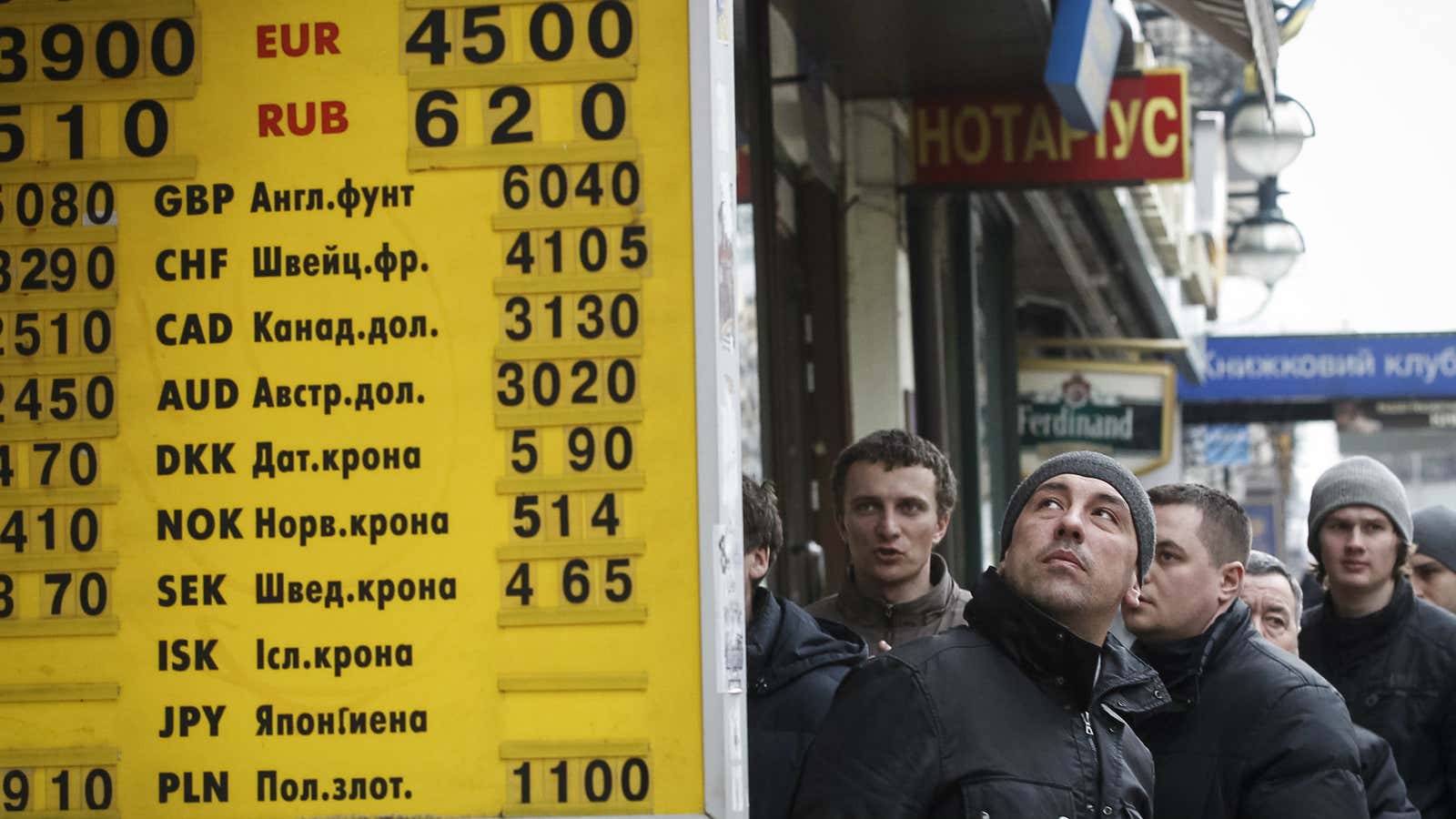A letdown for the lira. A rough ride for the ringgit. The terrible tenge.
Emerging markets are getting squeezed by China’s sputtering economy, falling commodity prices, and the prospect for a hike in US interest rates. That’s been reflected by a decline in the value of currencies from Malaysia to Mexico. And what had been a steady slide is fast turning into a rout after today’s brutal sell-off in Asian markets.
China’s clumsy devaluation and increasingly desperate stimulus efforts are spooking investors in countries that rely on Chinese demand. The Malaysian ringgit has dropped to a 17-year low against the dollar; Vietnam has devalued the dong three times this year.
Weaker demand from resource-hungry China, when combined with a glut in oil and other important commodities, is putting pressure on currencies like the Nigerian naira, South African rand (now trading at an all-time low against the dollar), and Russian ruble. Central Asian currencies, like the Kazakh tenge, are being brutalized by simultaneous slowdowns in their two most important trading partners—Russia and China.
Take these factors and mix in some political instability, as in Turkey and Brazil, and you have all the ingredients for turmoil in markets that investors consider risky bets at the best of times.
